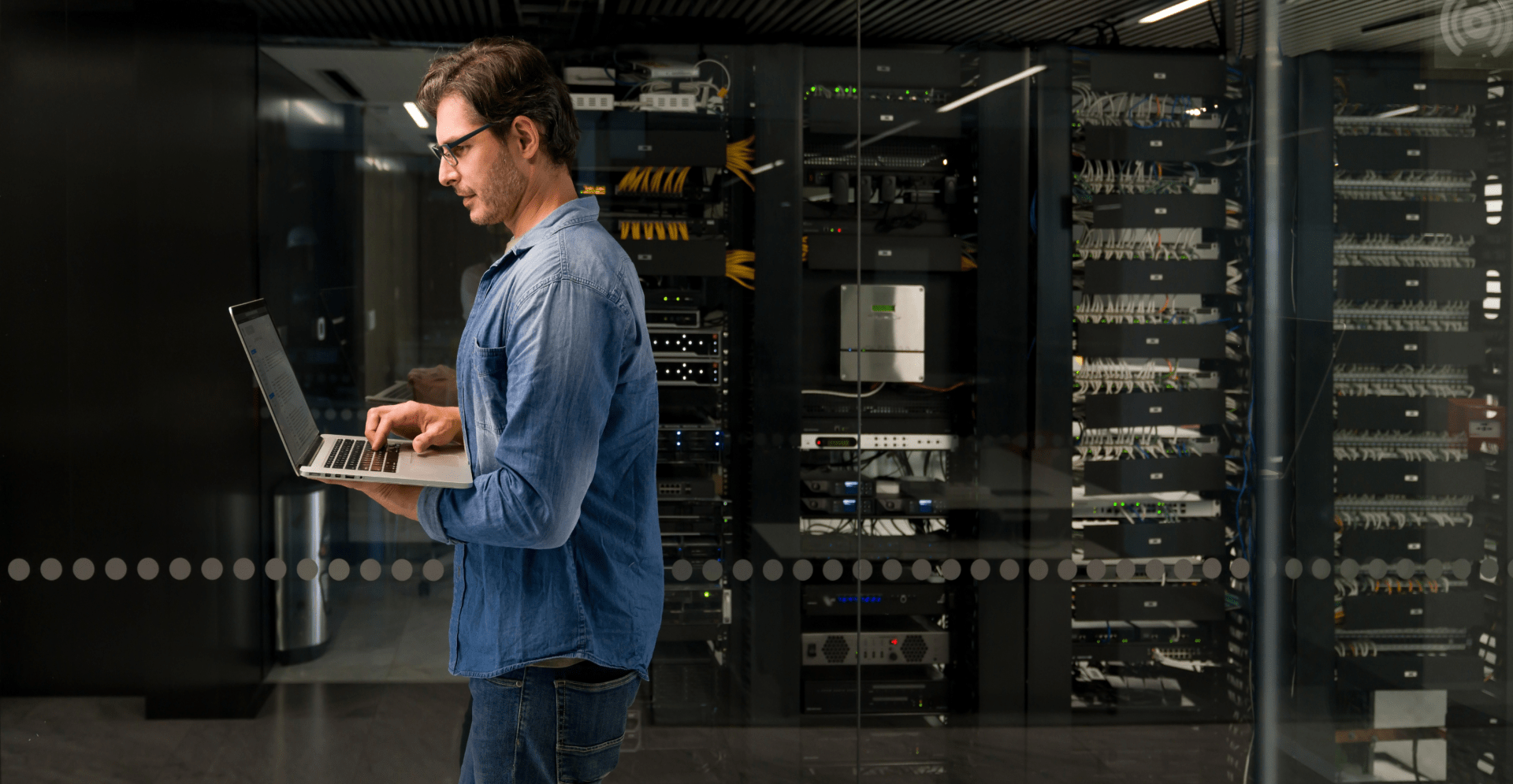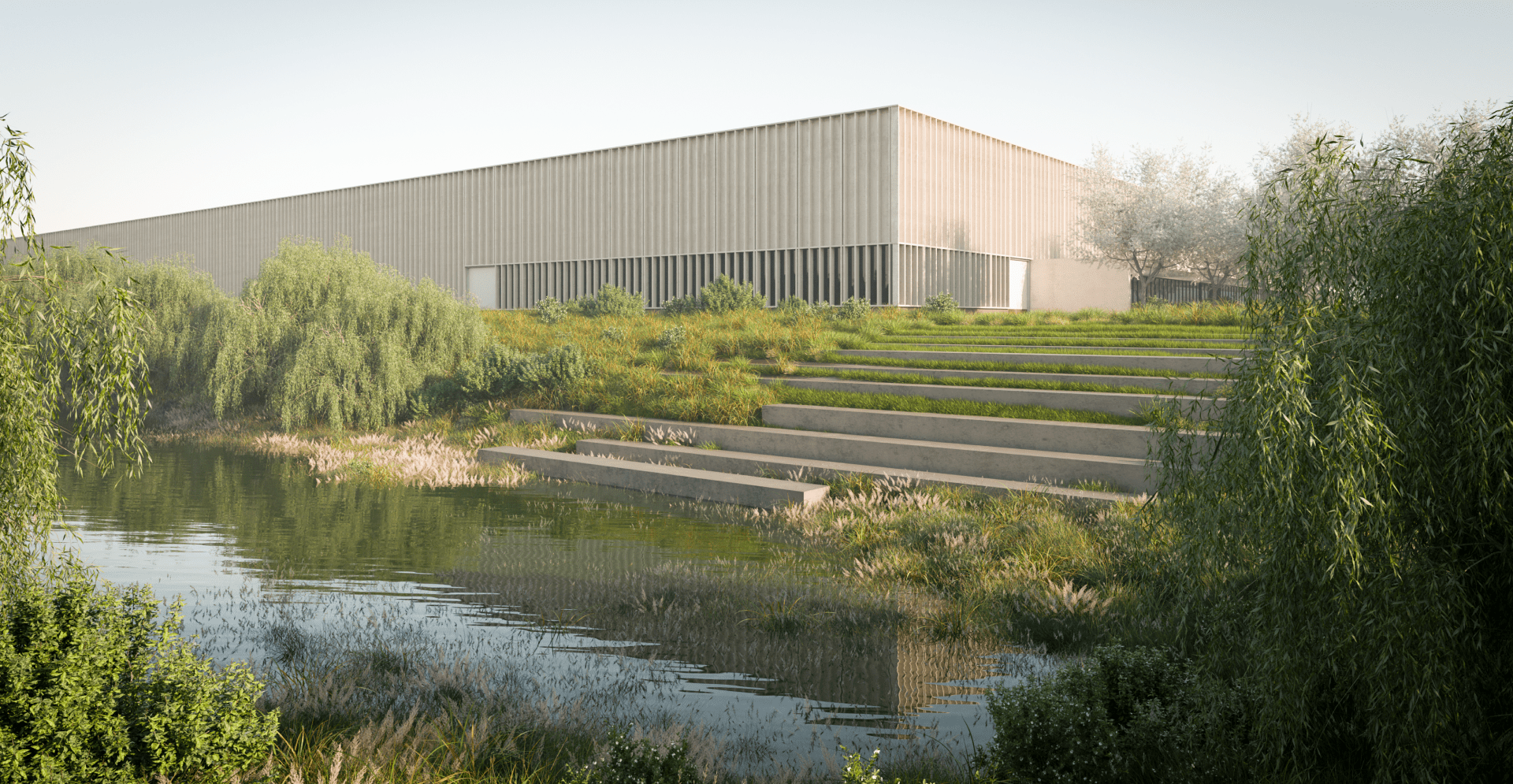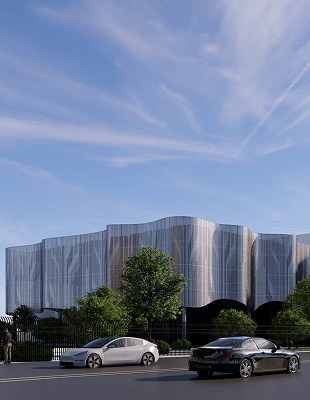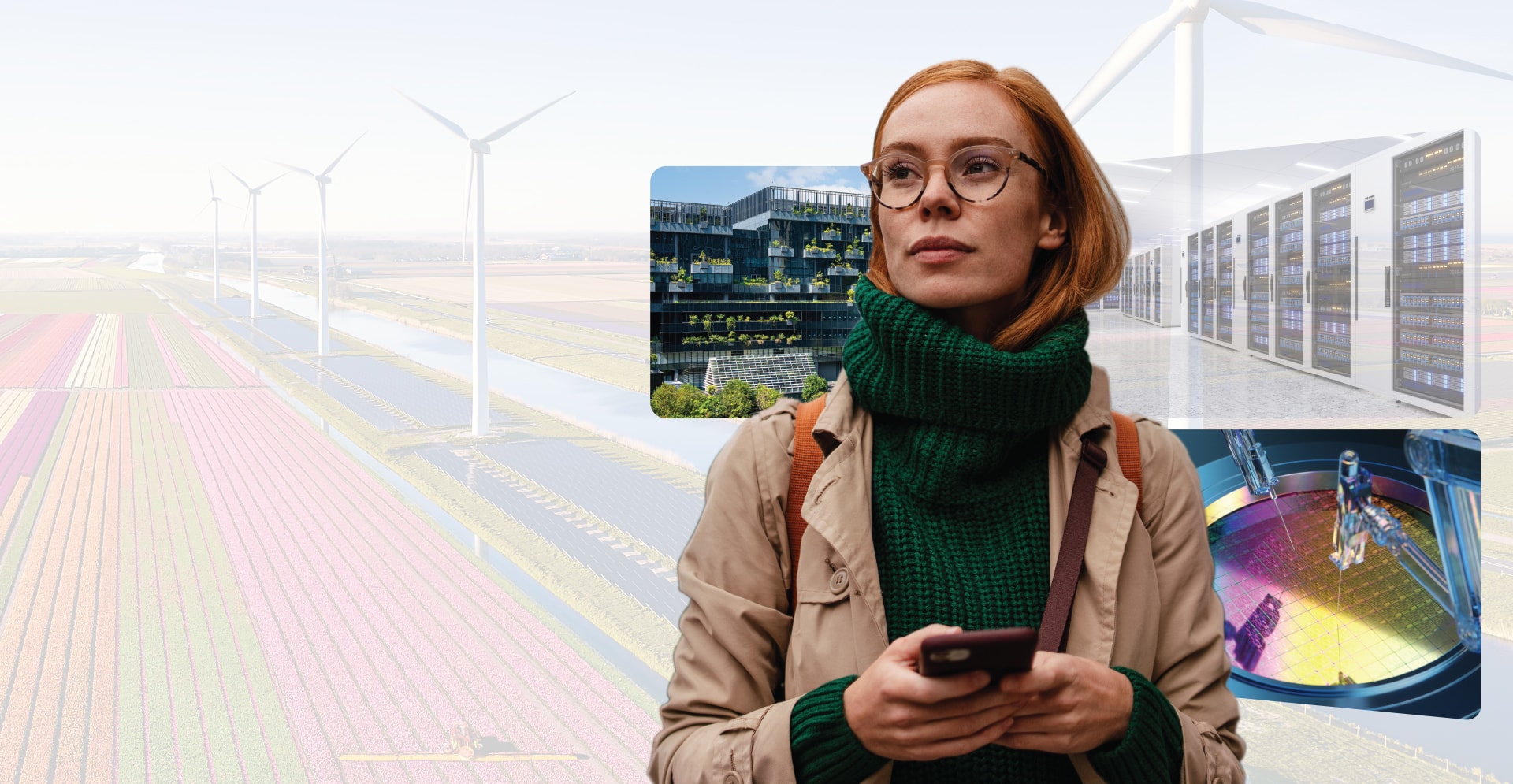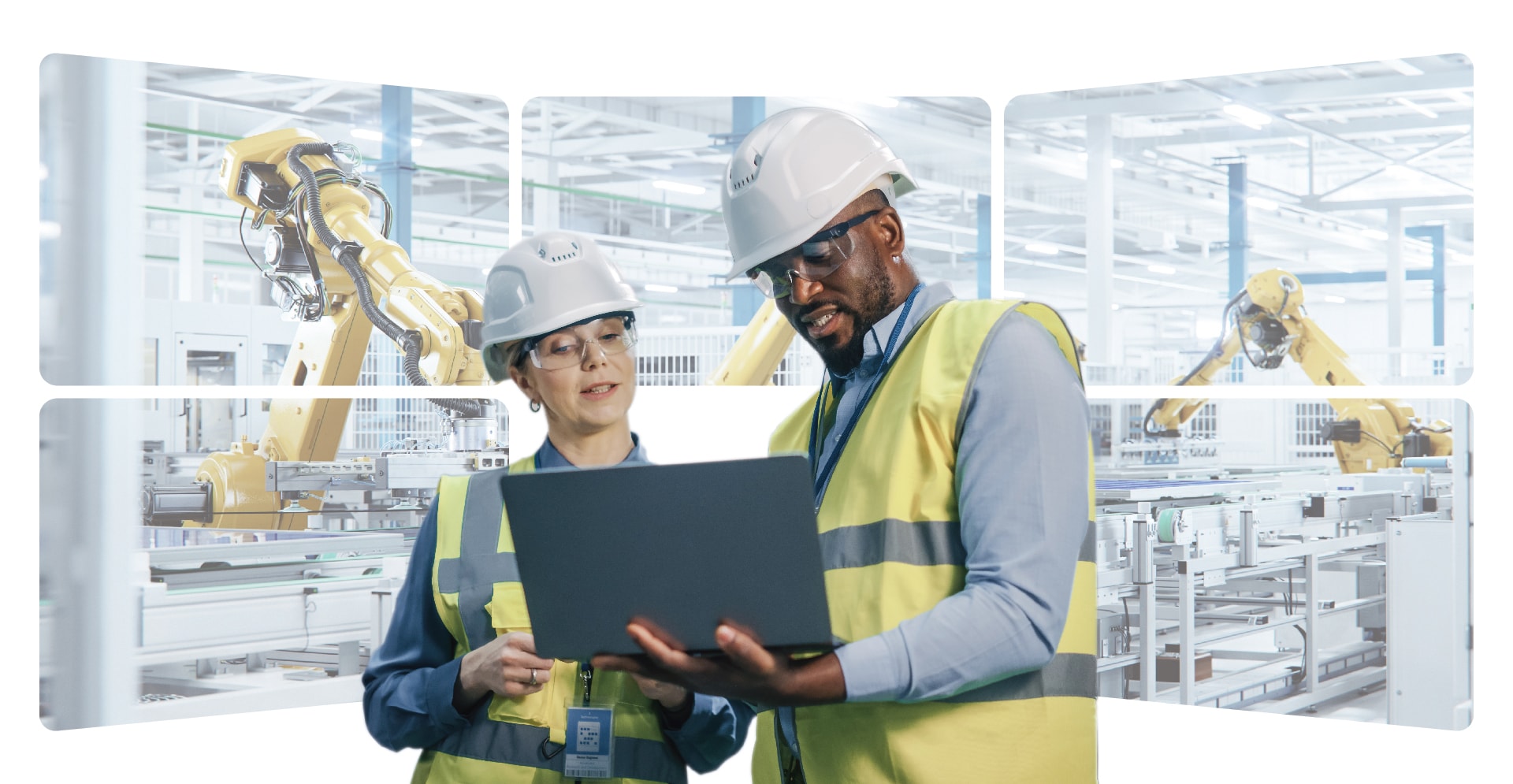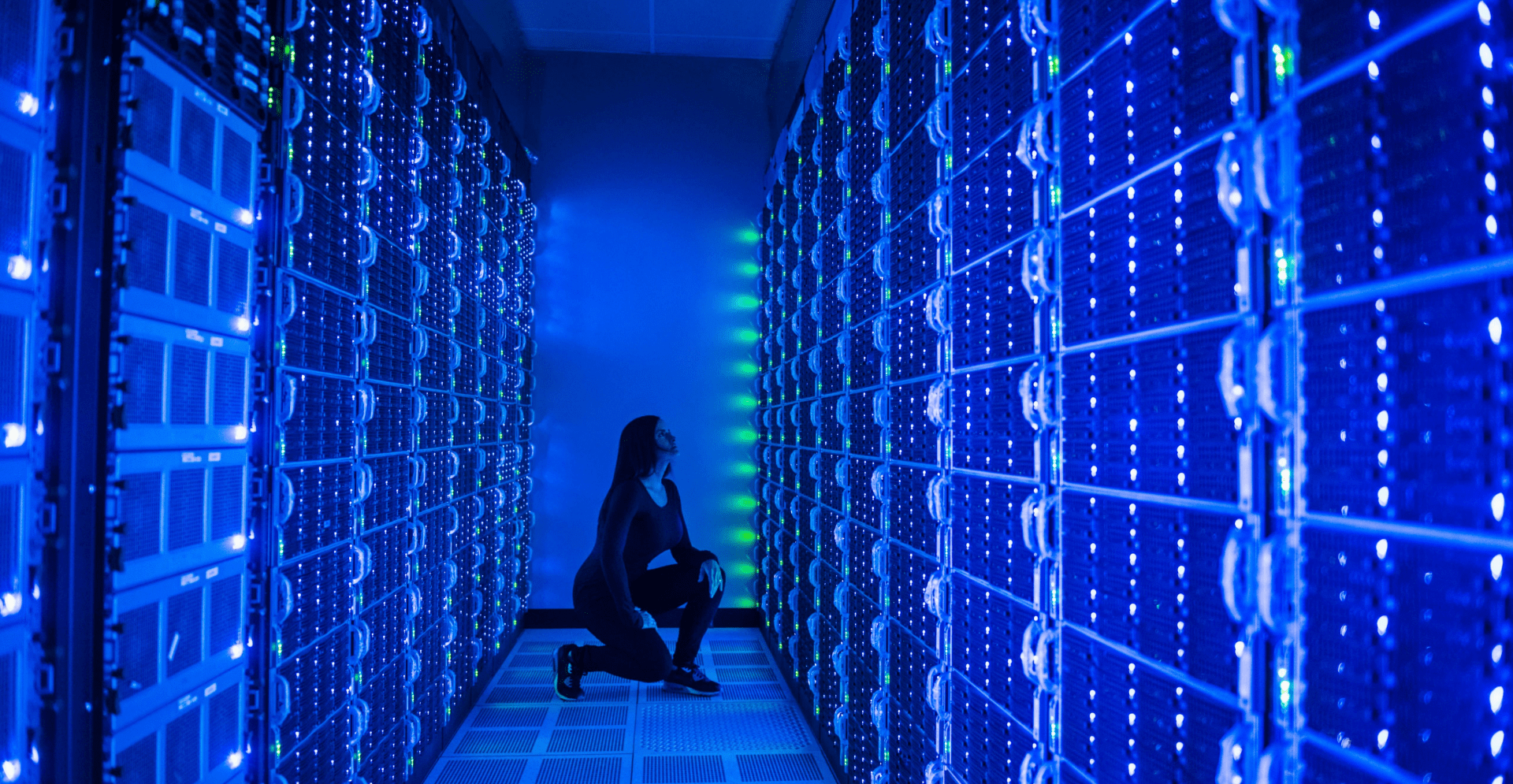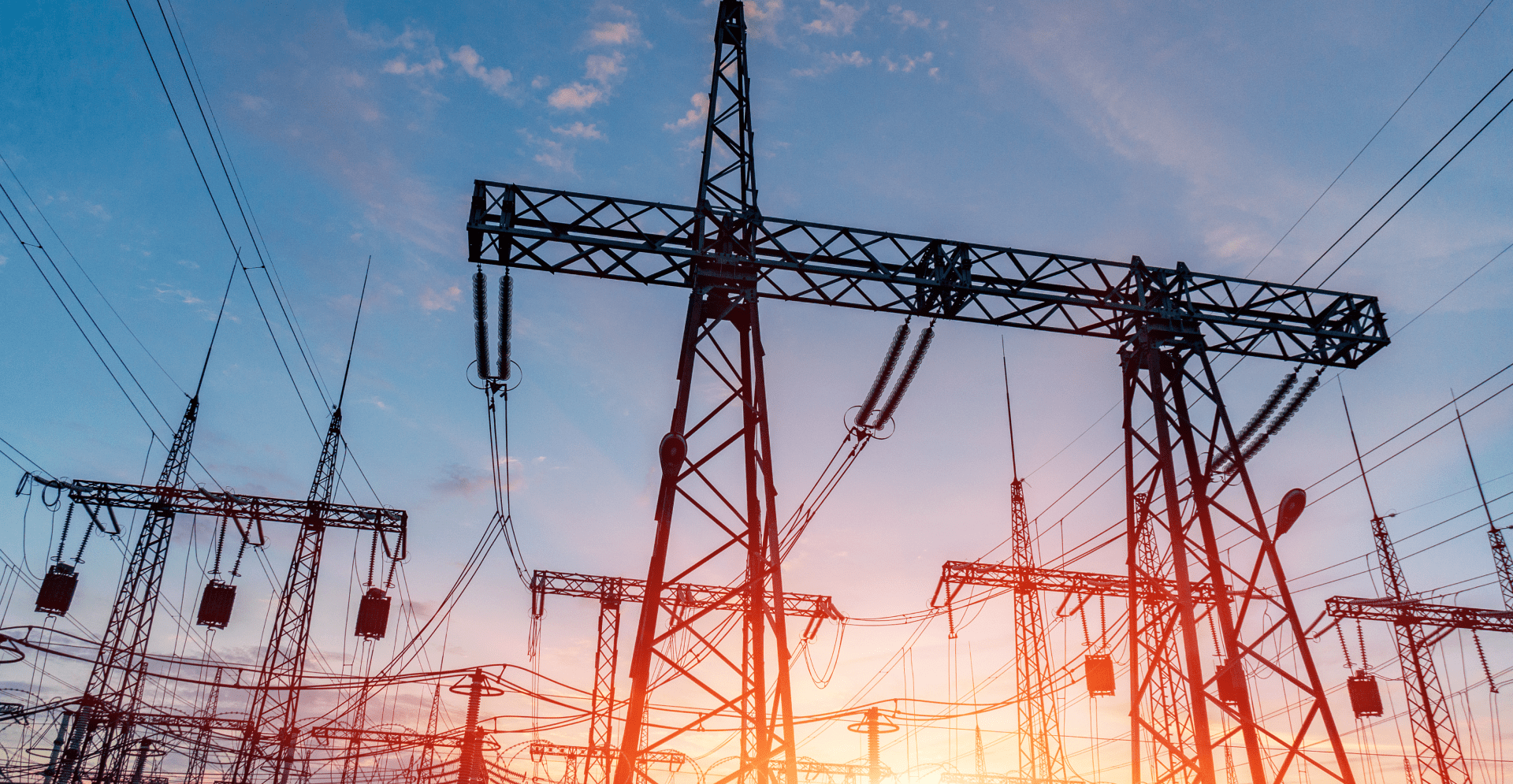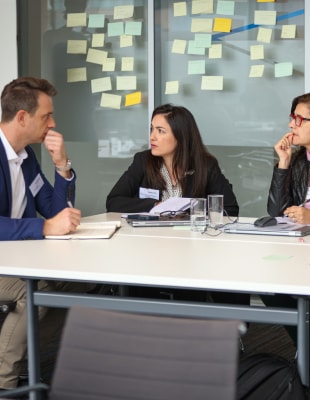Table of Contents
The challenge
KBC aims to use the most sustainable solutions in its new data centers. Sustainability must be continuously measurable.
2
KBC wants to provide its customers with first-class services, such as high-performing digital solutions, secure storage and transfer of data. To achieve this, the financial institution is building two new, identical data centers in Mechelen and Heist-op-den-Berg, Belgium. These data centers must meet the highest standards in the following areas:
- Security: Data centers handle a great deal of sensitive information and must therefore be highly secure.
- Reliability: The data centers must meet the operational reliability standard of TIER III (minimum 99.98% availability).
- Sustainability: KBC wants to apply the most energy-efficient and sustainable solutions available for both data centers. The sustainability of the entire project must be continuously measurable, both during the design phase and construction phase.
- Biodiversity (nature-positive design): KBC is committed to increasing biodiversity at both sites.
- Flexibility: The buildings must be adaptable to future layout changes without requiring major modifications.
The solution
Arcadis maps out KBC's ambitions, connects them to concrete goals, and develops a state-of-the-art, sustainable design.
1.3 megawatt
KBC entrusted Arcadis and BAUT Architects with the design of the two new, identical data centers. Arcadis is managing the entire project, from program definition to project delivery. The most innovative and sustainable techniques are being applied and have been pivotal to the design from the preparation phase onward.
From Sustainability Ambition to Design
In addition to defining specific requirements in areas such as ICT, technical systems, construction, and permits, we are applying our integrated approach to sustainable design in this project using our "ambition web". This tool allows us to map out the client's sustainability ambitions in detail across six key themes:

- Energy & CO2
- Climate Adaptation
- Circularity
- Nature & Biodiversity
- Health & Wellbeing
- Connectivity & Mobility
These ambitions are translated into concrete goals and design principles, which serve as a framework for the entire design and construction process.
Minimal CO2 Impact
To reduce emissions from the data centers, we focus on minimizing both operational energy usage and embodied CO2 from materials. The design exclusively incorporates energy-efficient electrical installations and integrates renewable energy sources, such as photovoltaic panels. Additionally, the residual heat from cooling the data center in Mechelen will be reused to heat surrounding buildings, including the KBC office building at the Mechelen site. Any remaining purchased electricity is entirely certified green energy.
We also carefully select materials that have minimal embodied carbon. This approach reduces the CO2 impact of the design by an impressive 90% compared to the reference scenario. Additionally, we prioritize the disassembly and reuse of building elements and materials, ensuring a high score in terms of circularity.
-
READ MORE
A notable feature of this design is the use of backup power generators powered by HVO (Hydrotreated Vegetable Oil) instead of diesel, offering a climate-friendly alternative for emergency power generation.
Nature-Positive Design
Using the Arcadis-developed Biodiversity Net Gain Calculator, we measure and evaluate the biodiversity of the two sites before, during, and after the project. A targeted design and maintenance plan for the outdoor areas will ensure an increase in biodiversity at both locations.
Cooling with Rainwater
Rainwater from the building's roof is collected and reused for adiabatic cooling (cooling through water evaporation in the air), eliminating the need for mains water. Additionally, we reduce the amount of paved surfaces at both sites, enabling efficient rainwater management. During intense rainfall, excess water will overflow into swales, where it can infiltrate back into the ground.
Comfort and Wellbeing
Through dynamic simulations, we optimize thermal comfort and natural daylight to enhance the health and wellbeing of all employees. To promote sustainable mobility, we provide ample bicycle parking spaces and charging infrastructure.

The impact
We demonstrate that sustainable design and construction is achievable, even in very complex projects.
Data centers are complex buildings with significant energy demands. Any improvement in energy efficiency has a substantial impact. By applying Arcadis' global knowledge and expertise in innovative sustainable techniques, we are able to deliver a sustainable and nature-positive design.
Not done reading?
This also might be interesting for you
- Related Projects
- Related Insights
- Related Blogs


